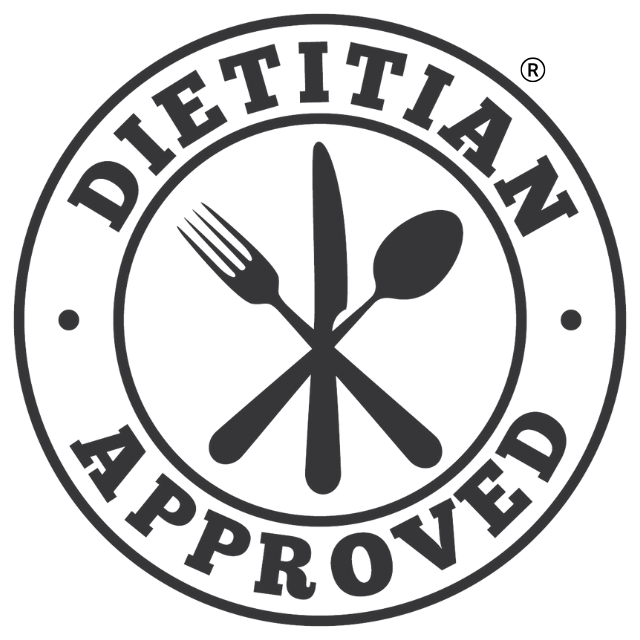
5 Tips to Manage Your Body Composition: Body Fat Loss for Triathletes
Oct 15, 2019
I often see endurance athletes struggling to manage their body composition. They strive to be leaner so drastically cut calories and then suffer for it with reduced energy levels, poor training performance and increased risk of illness and injury...
I despise the word ‘diet’ and don’t even get me started on ‘detox’. The idea of a quick fix is appealing but unfortunately, there is no magic pill for weight loss...
Diets are often gimmicky, unsustainable and are not going to provide adequate fuel to keep up with the often-high load of triathlon training. There are some very real consequences to inappropriate weight loss such as altered hormones, reduced immune function, impaired growth and development and don’t forget warped psychological state (Yes, being ‘hangry’ is a real thing).
You’ll notice decreased muscle strength, anaerobic power and endurance capacity; none of which are helpful when training or racing. Success as a triathlete in part relies on the athlete carrying his/her own body mass over a certain distance (sprint, OD, 70.3, IM), so it makes sense that a light and lean frame is desirable. But there's a fine line between lenses, health and performance.
So how can you lose weight (body fat) in a healthy, sustainable way while maintaining muscle mass and keeping the strength and performance to maintain training?
Here are my Top 5 Tips:
1. Slow & steady weight loss is key
A long-term approach is required to slowly lower body fat levels while maintaining the ability to train effectively. The ultimate goal is to change the balance between your daily energy intake and energy expenditure.
Body fat stores are reduced when the scales are tipped to an energy deficit (where intake is less than expenditure).
Aim to lose no more than 0.5-1.0kg/week. This requires an energy deficit of 2000-4000kJ/day. An effective way to create an energy deficit to achieve a loss of body fat (other than getting a Dietitian Approved meal plan 😉) is to look at making a few easy swaps that replace energy-dense foods with lower energy-density options.
Here are a few quick examples:
- Swap your daily coffee made on full cream milk to a skinny one to save 380kJ
- Swap your afternoon mars bar craving for an apple to save 1090kJ
- Swap your chocolate chip muffin for a tub of Chobani high protein yoghurt to save 1150kJ
2. Focus on nutrient density
Nutrient density is a measure of the number of nutrients a food contains in comparison to the number of kilojoules. Nutrient-dense foods essentially give you the ‘biggest bang for your buck’.
With a heavy training load, you have increased requirements for vitamins, minerals and antioxidants so nutrient density should be your focus. To ensure you have enough nutrients in your day, base your lunch and dinner around this plate model on lighter training days:
- ½ plate of ‘free’ vegetables (carrot, capsicum, spinach, zucchini, broccoli etc…)
- ¼ plate of protein-rich foods (meat, chicken, fish, legumes, eggs, tofu…)
- ¼ plate of nutrient-dense carbs (potato, sweet potato, corn, rice, quinoa, pasta…always choose wholemeal/wholegrain)

Healthy Plate Model
3. Periodise your intake
Not every training day is the same and neither should your food intake. Some days will be heavy training days while others complete rest days. The easiest way to fluctuate your intake based around training load is to stick with three main meals each day as a base, then build extra snacks in and around training for fuelling and recovery.
It’s important to be strategic with carbohydrate in and around training sessions to fuel training adaptations and assist recovery, while still creating an energy deficit to achieve weight loss.
Training fasted (not eating breakfast before training) can promote the use of fat as a fuel source. But be careful using this strategy all the time as low carbohydrate availability may negatively affect performance and increase your risk of injury. Low glycogen levels (carbohydrate stores in the muscles and liver) have been associated with increased fatigue and perception of effort, poor concentration, increased risk of injury and compromised recovery.
Also, don’t forget it may be possible to train harder and for a longer period if carbohydrate is consumed before exercise. Overall, this will result in greater energy use and a better contribution to the negative energy balance that's needed to cause fat loss.
Make sure you have a nutrition plan that matches your training program. Train fasted for a slower, steady-paced or recovery session; fuel up before a hard interval run, hill-repeats on the bike or speed work in the pool as an example.
You can read more about Periodisation HERE
Check-in with your Accredited Sports Dietitian to develop a day-to-day training nutrition meal plan to best support your performance and body composition goals.
4. Eat mindfully
If you're eating when distracted, you won’t actually realise that you’ve eaten your meal or snack, leaving you wanting more when you don’t necessarily need it. Turn your TV/computer/phone off and take time out to sit at a table and concentrate on what you’re eating.
Time yourself and try to take at least 20 minutes to eat your meal. This will give your stomach enough time to tell your brain that it is full. To take longer, put your knife and fork down in between mouthfuls, cut your food into smaller pieces and focus on chewing and actually tasting your food. Remember there aren’t any tastebuds in your stomach!
To learn more about mindful eating, check out our Online Learning Module HERE where I walk you through an exercise in exactly how to practice it.
5. Get organised
Healthy eating can be easy with a bit of time spent on planning and organisation. Take the time on the weekend to do some menu planning. Write a shopping list and stock up the kitchen with smart, nutrient-dense ingredients for the week ahead. Batch cook meals like mince, curries, stir-fry’s and keep leftovers in the freezer for busy evenings instead of grabbing a takeaway or making poor choices when you’re starving.
Hate meal planning? I've taken all the stress and effort away and done this for you!
Check out our Weekly Menu Planning Service HERE!
Preparation is key!
Tags: Brisbane Dietitian, Brisbane Sports Dietitian, dietitian, Dietitian Approved, Dietitian Brisbane, mindful eating, multisport, Triathlon Nutrition, Nutrient density, nutrition, organise, Menu Planning, periodised nutrition, preparation is key, Sports Dietitian Brisbane, sports nutrition, triathlon, weight loss, Endurance Sports Nutrition
Don't miss a beat!
New moves, motivation, and classes delivered to your inbox.
We hate SPAM. We will never sell your information, for any reason.

